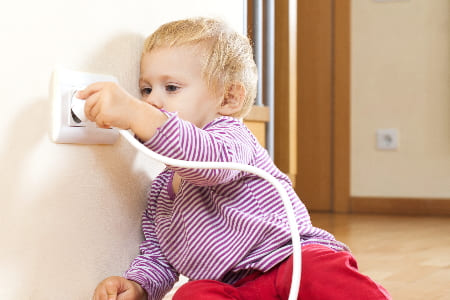The Ultimate Guide to Electrical Safety in Your Home: Tips from Expert Electricians

Electrical safety is paramount in every home, yet it's often overlooked until an accident or malfunction occurs. To help you prioritize safety and prevent potential hazards, we've compiled the ultimate guide to electrical safety in your home, featuring valuable insights and tips from expert electricians. From identifying common hazards to implementing preventive measures, this comprehensive guide will empower you to safeguard your home and loved ones against electrical dangers.
Understanding Common Electrical Hazards
Electrical hazards can manifest in various forms, posing risks such as electric shock, fires, and damage to appliances. Faulty wiring, overloaded circuits, and outdated electrical panels are among the most common culprits. Signs of potential hazards include flickering lights, burning odors, and frequently tripped circuit breakers. It's crucial to address these warning signs promptly to prevent accidents and ensure the safety of your home.
Tips for Preventing Electrical Hazards:
- Schedule Regular Electrical Inspections: Routine inspections by a qualified electrician are essential for identifying potential hazards and ensuring the integrity of your home's electrical system. Aim to schedule inspections every few years, or more frequently if your home is older or you've recently experienced electrical issues.
- Upgrade Outdated Wiring: If your home has outdated wiring, such as knob-and-tube or aluminum wiring, consider upgrading to modern, safer alternatives like copper wiring. Upgrading wiring not only enhances safety but also improves the reliability and efficiency of your electrical system.
- Avoid Overloading Circuits: Overloading circuits by connecting too many devices to a single outlet or circuit can lead to overheating and fire hazards. Spread out electrical loads across multiple circuits and use power strips equipped with surge protection to prevent overload.
- Install Ground Fault Circuit Interrupters (GFCIs): GFCIs are crucial for protecting against electric shocks in areas prone to moisture, such as kitchens, bathrooms, and outdoor outlets. These devices detect ground faults and quickly interrupt power to prevent electrical accidents.
- Use Tamper-Resistant Outlets: Tamper-resistant outlets feature built-in shutters that prevent children from inserting objects into the slots, reducing the risk of electric shock and injuries.
- Practice Appliance Safety: Regularly inspect appliances for frayed cords, damaged plugs, or signs of overheating. Unplug appliances when not in use and avoid running cords under rugs or furniture, where they can become damaged or overheated.
- Exercise Caution with DIY Electrical Work: While DIY projects can be rewarding, electrical work should be left to trained professionals to avoid safety hazards and code violations. Consult a licensed electrician for any electrical installations, repairs, or upgrades to ensure they're done safely and correctly.
Prioritizing electrical safety in your home is essential for protecting your family and property from potential hazards. By understanding common electrical hazards and implementing preventive measures, you can create a safer environment and enjoy peace of mind.
Remember to schedule regular electrical inspections, upgrade outdated wiring, and exercise caution with DIY projects. With the guidance of an expert electrician and proactive safety measures, you can minimize the risks of electrical accidents and ensure a safer, more secure home for years to come.
Call Advanced Electrical Company, LLC for top services including electrical safety inspections. Get in touch for all of your residential electrical services in Birmingham.
Don't Wait! Contact Our Professional Birmingham Electrician Today!